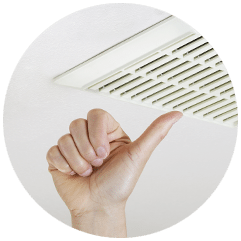Creating the best environment for making wine.
Your winemaking set up is a very important part of crafting you own wine with RJS Craft Winemaking kits. Make sure you follow the tips below to make sure your space is not negatively impacting your winemaking process.

1) Keep it clean!
Maintaining a clean and sanitary working environment is extremely important to the success of your winemaking process. Spoilage micro-organisms (yeasts & bacteria) are ubiquitous waiting for the “right” conditions to strike and once an area is infected it is difficult to clean up.
- Avoid puddles and clean up spills immediately (water and especially juice / wine); these can become a breeding ground for spoilage micro-organisms.
- Develop a strict cleaning & sanitizing regimen, and get into the habit of always cleaning & sanitizing equipment before and after use.
- Avoid areas with odours (e.g. oil, gas, mildew) which could otherwise affect wine quality.
- Ensure that the outside of all winemaking equipment is thoroughly sanitized, not only the inside of equipment.
- Install hand sanitizing stations in washrooms and winemaking area.

2) Not too warm,
not too cold!
Maintain an adequate temperature and monitor with a good quality thermometer.
- 20°–25°C (68°–77°F) is the ideal ambient temperature for the must (juice) and ideal temperature for fermenting wine.
- This aspect of the winemaking environment is often overlooked and is the number one contributor to stuck and sluggish fermentations
- Avoid temperature spikes and fluctuations from HVAC units and sun, esp. in the fall & spring when furnace is not cycling as often.
- Regulate water temperature to reconstitute concentrate.
- Don’t stress the yeast with high or low temperatures; you may end up with a stuck fermentation that could prove difficult to restart and could result in a flawed wine.

3) Ensure Proper Ventilation
- Alcoholic fermentation produces an appreciable amount of carbon dioxide (CO2) gas.
- CO2 is heavier than air and therefore it does not displace easily.
- CO2 is colourless however it can be detected on the nose in the form of a sharp tingling sensation similar to “smelling salts” or strong vinegar.
- Ensure good ventilation to the outdoors during fermentation.
- CO2 is a deadly asphyxiant in concentrations >10%.
- CO2 has proved fatal in both the commercial and craft winemaking industry.
- Install a CO2 detector!

